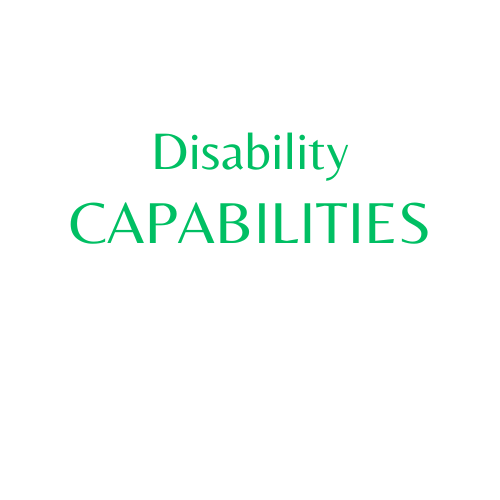A Review of Our Core Findings in the First Quarter of 2025 & The Way Forward in Researching Neurodivergence and Disability’s Impact on the Mind.

Neurodivergence is a complicated subject.
It encompasses an endless permutation of some 450 recognized clinical mental health conditions, interspersed with structural, systemic, and functional factors that can determine the intensity of each individual's condition.
Neurodivergence also has an intersection with the impacts of disabilities on mental health. These conditions are poorly understood around the world. However, emerging trends are unfolding that can help people understand their neurodivergence statuses, embrace them, and engage with the neurotypical persons of their place and time.
Our Preliminary Findings in Q1, 2025
1. There are huge gaps in conceptualizing neurodivergence around the world.
2. The measures for neurodivergence is huge, and there is no consensus on recognition and treatment of neurodivergence.
3. In the Global North, there is an over-diagnosis of clinical mental health conditions that overlap with neurodivergence.
4. In middle-income countries in the Global South, there are few resources dedicated to neurodivergence and diagnosis and management.
5. In poorer countries in the Global South, neurodivergence is viewed in metaphysical understandings, while the pervasive socioeconomic realities, force the neurotypical measures to be highly critical of neurodivergent individuals.
Reframing Our Goals
Based on these primary findings, we will continue to:
1. Document neurodivergence as a sociolegal matter that encompasses the individual's human rights and the overall public health needs of the community.
2. Develop a consistent universal framework to define core concepts and ideas that will comprehensively capture different elements and aspects of neurodivergence.
3. Create particularist parameters for the regional research and the handling of neurodivergence based on the nation-state and dominant trends in diferent sub-regions of the world.
4. Undertake exploratory research to develop mechanisms of managing and leveraging neurodivergence in the context of neurotypical systems that cover: (a) Functional (b) Structural, and (c) Systemic parameters.
5. Conduct active research to gather data and observe dominant trends according to the major empirical findings on neurodivergence. This will include (a) Lived experiences, (b) Clinical diagnoses and treatment, (c) Disability and the mind, and (d) Modification of the mind through the stages of life - old age, after an illness, and other lifechanging events.
6. Critique the capabilities approach, based on proactive engagement as a tool for the inclusion and leveraging of neurodivergent persons in society.
7. Study mechanisms and tools for the transplantation of efficient solutions in neurodivergence from region to region around the globe.
How We Plan to Proceed with the Research Ahead
There are five stages we hope to commit to in continuing our study:
1. Contextualising and developing universal themes on neurodivergence (exploratory).
2. Developing regional patterns and trends for neurodivergence around the world (exploratory).
3. Testing the different models of neurodivergence regionally and globally.
4. Empirical data collection on pertinent trends to understand and manage imminent issues in neurodivergence, and
5. Development of long-term studies on neurodivergence and the continuous advancement of humanity.
Essential Scholarly Sources We Have Consulted Thus Far:
Begon, Jessica. “4 Capabilities for Control” Disability Through the Lens of Justice Oxford: Oxford Academic, 2023
Burchardt, Tania. “Capabilities and disability: the capabilities framework and the social model of disability” Disability & Society 19 (7) 2004 pp735-751
Catala, Amandine. “Understanding Neurodiversity, Unlearning Neuronormativity” Blog of the APA, Published: April 11, 2023. Accessed: March 20, 2025. Available at: https:// blog.apaonline.org/2023/04/11/understanding-neurodiversity-unlearning-neuronormativity/
Denson, Thomas, Griffiths, Mary-Ann & Smith, Lachlan. “Attitudes toward incarceration, neuronormalization and psychological treatment for violent offenders” Psychology, Crime & Law. 2024 DOI: 10.1080/1068316X.2024.2381147
Dwyer, Patrick. “The Neurodiversity Approach(es): What Are They and What Do They Mean for Researchers?” Human Development 66 (2) 2022 pp73-92 DOI: 10.1159/000523723
Harnacke, Caroline. “Disability and capability: exploring the usefulness of Martha Nussbaum's capabilities approach for the UN disability rights convention” Journal of Law & Medical Ethics 41 (4) 2013 pp768-780
Heasman, Brett & Gillespie, Alex. “Neurodivergent intersubjectivity: Distinctive features of how autistic people create shared understanding”. Autism 23 (4) 2018 pp910-921 DOI: 10.1177/1362361318785172
Hillary, Alyssa. “Neurodiversity and cross-cultural communication” Neurodiversity Studies 2020 DOI: 10.4324/9780429322297-10
Hofstede, Geert & Hofstede Gert Jan. Cultures & Organizations. New York: McGraw Hill, 2010.
Marocchini, Eleonora & Baldin, Irene. “Cross-neurotype communication from an autistic point of view: Insights on autistic Theory of Mind from a focus group study.” International Journal of Language & Communication Disorders 59 (6) 2024 pp2465-2482 DOI: 10.1111/1460-6984.13095
Mitra, Sophie. “The Capability Approach and Disability” Journal of Disability Policy Studies 16 (4) 2006 pp236-247
Northwestern Medicine. Understanding Neurodiversity Exploring Differences in Brain Function. Research Proposal 7 Published: April, 2024. Accessed: March 1, 2025. Available at: https://www.nm.org/healthbeat/healthy-tips/Understanding-Neurodiversity
Nussbaum, Martha. Creating Capabilities: The Human Development Approach. Cambridge, MA: Harvard University Press, 2011
Riddle, Christopher. Disability and Justice: The Capabilities Approach in Practice. Lanham, MD: Lexington Books, 2014
Rosqvist Hanna, Botha Monique, Stenning, Anna. “Cutting our own keys: New possibilities of neurodivergent storying in research” Autism 27 (5) 2022 pp1235-1244. DOI: 10.1177/13623613221132107
Trani, Jean-Francois, Parul Bakshi, Nicolo Bellanca, Mario Biggeri & Francesca Marchetta. “Disabilities through the Capability Approach lens: Implications for public policies” Alter 5 (3) 2011 pp143-157





